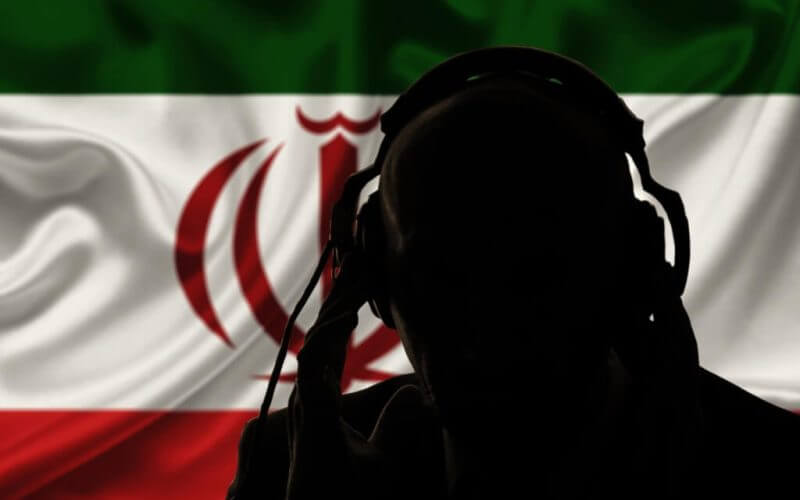This week, new investigative reporting from Semafor and Iran International revealed the extent to which Western officials from the United States and Europe with ties to the Islamic Republic of Iran bolstered the regime's image and promoted the 2015 nuclear agreement.
Thousands of emails uncovered by these media outlets revealed that at least three individuals working for suspended American diplomat Robert Malley were part of Tehran's 2014 brainchild, the Iran Experts Initiative (IEI). The IEI was created as a group of scholars and analysts who could help shape the pro-regime narrative in the U.S., Europe and in the mainstream media. In the U.S., Ariane Tabatabi, Dina Esfandiary, and Ali Vaez were named in the report as having close ties to the government in Tehran.
“The Iranian regime has for the past decade spent concerted efforts developing information operations targeted at Western audiences,” said Gabriel Noronha, a former State Department official and fellow at The Jewish Institute for National Security of America (JINSA).
“From 2013-2017, these were largely focused on shaping discourse regarding Iran's nuclear activity and pivoted in 2018 to try to discredit U.S. sanctions and pressure America into providing sanctions relief,” he added.
All three of the officials were in constant communication with Iranian officials via email on issues related to articles and op-eds on Tehran's image and criticisms of the nuclear program.
On several occasions, Tabatabi, whom Iranian dissidents regard as a regime sympathizer and whose father allegedly has ties to the government, was able to check in with the Islamic Republic's Foreign Ministry "before attending policy event," including a congressional hearing.
Tabatabi published articles and op-eds on media outlets like Foreign Policy while providing interviews to the Huffington Post and Iran's Fars News agency, which has connections to the Islamic Revolutionary Guard Corps (IRGC). In one article for the National Interest co-written with Dina Esfandiary, both argued that Iran was "too powerful" to be contained and "doesn't need any agreement to be empowered and to strengthen its foothold in the region."
Ali Vaez, Director of the Iran Project and Senior Advisor to Crisis Group, allegedly communicated with Mostafa Zahrani, an Iranian official behind the IEI, through email, asking him for "comments and feedback" on an article he wrote on defusing the nuclear crisis. Zahrani forwarded the email to the regime's Foreign Minister Mohammad Javad Zarif.
In March 2014, Saeed Khatibzadeh, a second Iranian official behind the IEI, described himself, Tabatabai, and Esfandiary as "the core group."
“Particularly under Foreign Minister Javad Zarif, the Iranian Foreign Ministry has developed Western voices and experts it can use for these information shaping exercises,” Noronha told The Foreign Desk.
According to Semafor, during the 2015 negotiations between the US and Tehran over its nuclear program, Saeed Khatibzadeh, a Berlin-based Islamic Republic diplomat and future Foreign Ministry spokesperson, and Zahrani bragged to their superiors in internal emails about "the initiative's successes."
Esfandiary and Vaez advised the think tank that Malley headed before joining the Biden administration two years ago.
Tabatabai served on Malley's team before working as chief of staff for the assistant secretary of defense for special operations. Malley tried to appoint Vaez to a government job, but Vaez "could not obtain the necessary security clearance."
On Twitter (X), Vaez released a 32-point thread on the latest report defending himself.
In June of this year, Malley was placed on unpaid leave with his security clearance revoked. The FBI is currently investigating him for mishandling classified information. On Tuesday, U.S. State Department spokesperson Matthew Miller dismissed the story for containing information from "almost a decade ago."
Following the report's release, several prominent members of Congress weighed in on the subject. Republican Senator Ted Cruz, a member of the Senate Foreign Relations Committee, released a statement describing the latest revelations as "indescribably troubling," calling for a "halt in secret Iran negotiations.
"Americans have rightly been asking why the current administration is so friendly with the Iranian regime," Cruz stated, "and why Biden administration officials have so single-mindedly enabled Iranian nuclear progress and terrorism. These reports and emails suggest a vast Iranian influence operation that goes to the very top of the administration."
South Carolinian Republican Senator Lindsey Graham also expressed concern over the new revelations, stating that if such information were accurate, it would be "stunning on so many levels."
On Twitter, Arkansas Republican Senator Tom Cotton also sounded off on the revelations, stating that "senior officials in both the Biden and Obama administrations were likely party to an Iranian-backed PR campaign."
“The latest revelations show that these operations punctured far deeper into the U.S. decision making system than were previously known, particularly those connected to now-suspended Special Envoy for Iran Rob Malley. It is surprising that the Biden administration has not yet suspended one implicated individual who serves as a senior Pentagon official, but we can expect strong pressure in Congress to counter this stance,” Noronha said.
Related Story: Iran’s Hand in Washington + D.C./Saudi Relations









